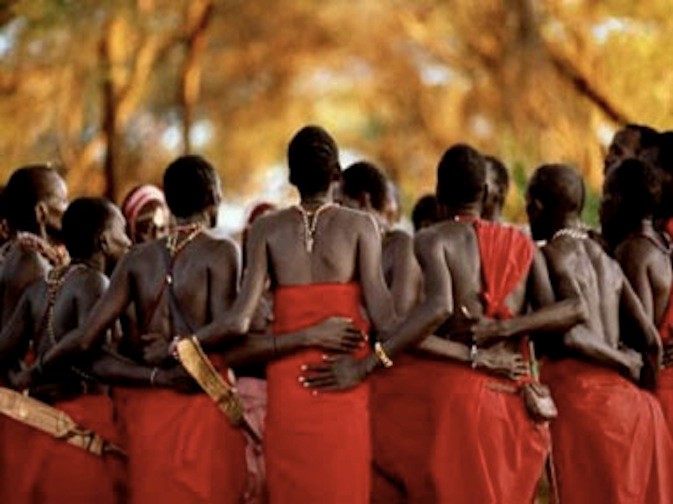Sawubona

Sawubona is a Zulu greeting that translates to “I see you, you are important to me and I value you”. While us Westerners are accustomed to a greeting of “How you doing?” or “How’s it going?” with the usual perfunctory response of “Fine, how are you?”, Sawubona conveys acceptance at where the other person is at in that given moment. Sawubona is an invitation to deep witnessing and presence. Feeling acceptance from another assists in making the other person deepen their acceptance of Self. The response to “Sawubona” is “Shiboka” which means “I exist for you”.
So, this sounds all fine and well in theory, but does it really make any kind of difference?
Yes, it does.
In 2013 I attended the 5-day Brain Development & Learning Conference in Vancouver organized by the UBC Interprofessional Continuing Education department. It was like the premier “rock-fest” for psychology nerds like me – all the greatest minds in “what makes humans tick” were there (so many of my academic crushes in one place). One of the lectures I attended was by Linda Lantieri, Senior Program Advisor, Collaborative for Academic, Social, and Emotional Learning (CASEL) Adjunct Assistant Professor, Columbia University, Teachers College. Linda is responsible for prioritizing social-emotional learning and bringing mindfulness practices into many of the school in the US. There were several hundred attendees at Linda’s lecture and she had us engage in an English language version of the Sawubona greeting. Participants were asked to turn to their neighbour and greet them with:
“I see you”.
The person being greeted responded with: “I am here. I see you”.
The greeter responded with: “I am here”.
What did engaging in this exercise with strangers achieve? For me, I felt a sense of genuine connection; I felt “seen” in a way our lackadaisical “howyadoing?”, with the response of “fine, you?” has never made me feel. S-L-O-W-I-N-G down and being intentional in our interactions with others has amazing benefits for our wellbeing. We are social creatures. While social media gives us a false sense of connection and popularity, how many of your friends and followers do you feel truly *seen* and accepted by? Technological devices have enabled us to reach out to others at any time, but it does not gift us with the deepened *felt* sense of connection experienced in directing our attention to another person.
The Zulu people believe that individuals need to be truly seen and accepted exactly as they are. They seek moments where they can maintain eye contact and emit palpable presence with the person they are engaged with (in Western society, we call this “holding space” for more on this: https://blacksheepcounselling.com/2017/07/holding-space/). They have experienced feeling valued by another and have learned to provide that for others.
Another noteworthy Zulu custom is this:
When someone from the Zulu community commits an inappropriate or offensive act, their presence is required in the centre of the village. Their neighbours, friends, and family make a circle around them. For two days, they go to the person and greet them by saying “Sapubon”. They remind them of their good deeds, virtues, successes, and admirable qualities.
For the Zulu community, no man is born evil. Sometimes, crises and imbalances make us stray from our natural goodness. The purpose of these gatherings in the village centre is to remind the person of their innate goodness. In turn, they also show them how important they are to the rest of the community. The intention is to esteem them and give them visibility so that they can return to a path of harmony and joy. During this gathering, each time a member of the community addresses the individual with “Sawubona”, the person responds by saying “Shikoba”. This exchange generates relief and acceptance in the person who felt shame and guilt for having engaged in an offensive act. The community conveys to the individual they belong. The Zulu people believe that human beings exist only if others see and accept them. The community makes the person. Therefore, nothing is more satisfying that being forgiven after a mistake. Feeling loved and accepted is something we all crave, and arguably, need.

What are some ways you can take the spirit of SUWUBONA into your daily life?

References:
https://exploringyourmind.com/sawubona-african-tribe-greeting/ https://lindalantieri.org/ http://braindevelopmentandlearning.com/BDL2013/presenters_2013.html B
